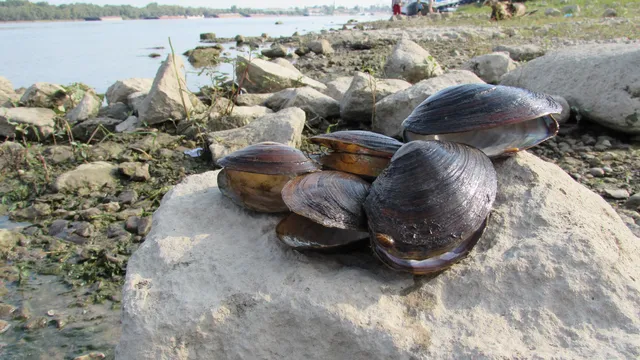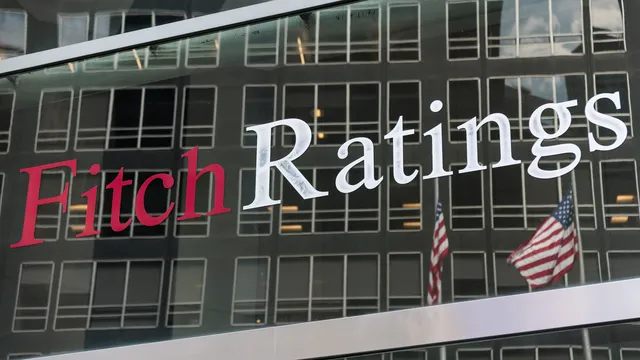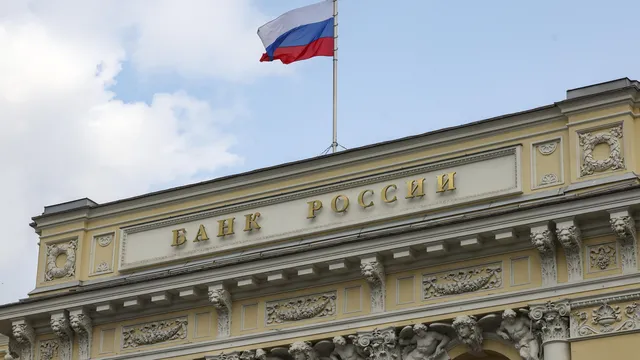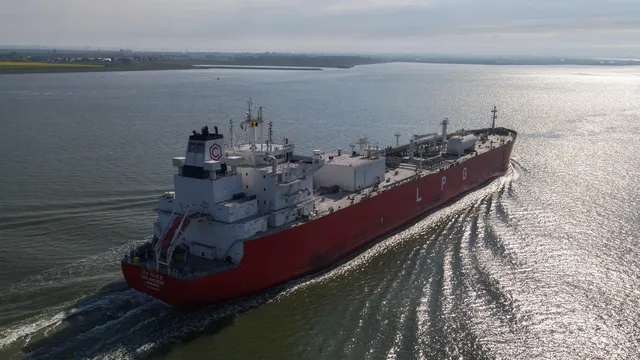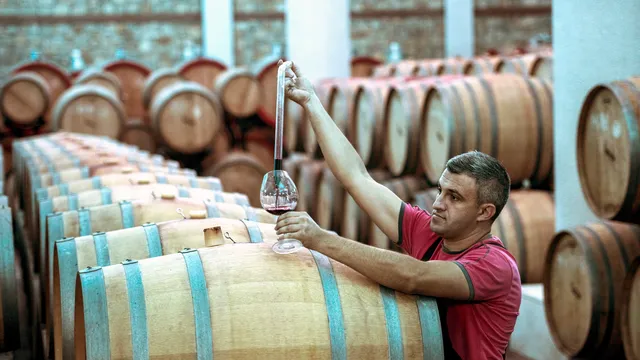Confronted with rising Black Sea temperatures that are literally suffocating his mussels, Bulgarian farmer Nayden Stanev has been forced to adapt – shifting his seeding schedule and harvesting at greater depths.
Despite the challenges, the 56-year-old former marine commando sees climate change both as a threat and as an opportunity for his business.
As tough as it is for Bulgarian farmers, their colleagues in the Mediterranean face even higher water temperatures. “We are better off,” Stanev told AFP.
Although Bulgaria still lags far behind major Mediterranean producers like Spain and Italy, it is already leading in the Black Sea. The country is less affected by marine heat waves, which experts say have sharply reduced mussel harvests across Europe. Still, warmer waters remain a serious threat.
“About 20% of the mussels didn’t survive this year,” Stanev said gravely, as empty shells piled up on the deck of his diesel boat. “Last year it was a real massacre – 80% were wiped out. The mussels literally suffocate in a sea that warms too fast.”
Lasting Change
Scientists warn that climate change is making marine heat waves more frequent and intense, with the Mediterranean warming faster than the global average.
In July, the average surface temperature of the Mediterranean reached 26.79°C – a record for the month, according to the research center Mercator Ocean International. At the same time, the Black Sea averaged 25.46°C – lower, but still alarmingly high.
“When temperatures approach or exceed 26°C – a threshold associated with mass mussel mortality – and remain there for extended periods during peak market season, it disrupts the entire supply chain,” explained Ioannis Theodorou of the University of Patras in Greece.
In the Black Sea, surface temperatures have risen by nearly two degrees over the past two years, noted Radoslava Bekova from the Institute of Oceanology at the Bulgarian Academy of Sciences. “The sea is undergoing lasting changes,” she said. Prolonged warming, without time to cool down, weakens mussels and makes them more vulnerable to disease.
High Demand
Together with his six employees, Stanev is on deck before dawn to harvest and deliver mussels, with the season peaking at the end of August.
He started his business more than 20 years ago in the bay of Cape Kaliakra – a prime location sheltered from strong currents. As his phone rings constantly, Stanev jots down orders in a small notebook. On a single day, he must deliver no less than 10 tonnes of mussels to restaurants and vendors in Bulgaria and neighboring Romania.
After a short trip from shore, the crew reaches the 200-hectare farm. Black buoys dot the surface, supporting long tubular nets filled with mussels. The work is carried out in silence with precise coordination – one man pulls up the nets, another cleans them, and a third sorts the shells.
Bags weighing some 800 kilograms each pile up on deck, while cormorants hover for leftovers. By the time the boat returns to the quay in the afternoon, several refrigerated trucks are waiting, alongside villagers with buckets eager to buy fresh mussels for their families.
Although global mussel production continues to grow, EU output has been declining since 2018. In 2023, about 356,500 tonnes were harvested in the bloc – down 21% from five years earlier, according to data from the European Market Observatory for Fisheries and Aquaculture Products (EUMOFA).
Spain led with 155,700 tonnes, followed by Italy with 57,279 tonnes. Bulgaria’s share was modest at around 1,100 tonnes, but despite the smaller volumes, it is already a leader in the Black Sea. Meanwhile, the value of European mussel production has risen by nearly 50%, reaching €463 million in 2023.
“This value gap is creating real opportunities for mussel production in the Black Sea,” said expert Theodorou. | BGNES, AFP

 Breaking news
Breaking news
 Europe
Europe
 Bulgaria
Bulgaria
